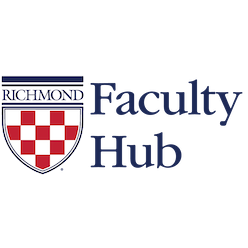As you prepare for the semester, we’d like to share upcoming workshops and resources from the Digital Pedagogy support team—faculty and staff from IS, WLC, the Faculty Hub, Innovation Studio, SAL, and more—working together to support effective use of digital tools in teaching and learning.
Digital Pedagogy Tools
The Digital Pedagogy Toolkit is a curated set of tools and resources designed to support University of Richmond educators in achieving their teaching and learning objectives. It serves as both a starting point for integrating technology into your courses and a quick-reference guide for sustaining and refining your digital strategy once implemented.
Not finding the tool you’d like to use—or interested in experimenting with something new? Consider applying for a Digital Pedagogy Grant to explore innovative approaches in your teaching this semester.
Faculty can find support pathways for specific technologies, with each section linking directly to assistance and resources. For broader pedagogy questions, the Faculty Hub offers personalized one-on-one consultations. For technical issues, visit SpiderTechNet to submit a support ticket.
AI Programming
AI Literacy Faculty Learning Community (FLC)
The AI Literacy Faculty Learning Community offers faculty a supportive space to build AI literacy, explore teaching strategies, and share experiences with colleagues. Facilitated by Saif Mehkari, Andrew Bell, and Ryan Cales, these sessions will combine presentations, guided discussions, and practical examples, with a focus on both the opportunities and challenges of generative AI. We’ll meet over breakfast in Dhall on Fridays this semester. Register here
Introduction to Computational Map Studies
September 15, 12–1:30 pm, Faculty Hub or Zoom
Explore MapReader to analyze digitized maps as data—no programming experience required. Co-hosted by CLAAI and the Faculty Hub, with lunch provided.
Register here
Non-AI Event
WordPress Workshop
September 17, 12–1 pm, Faculty Hub
Learn to use Create, UR’s new WordPress service, for digital assignments, portfolios, and collaborative course sites. Co-hosted by the Library and the Faculty Hub, with lunch provided.
Register here
We hope these workshops and resources are helpful as you plan for the semester ahead.
